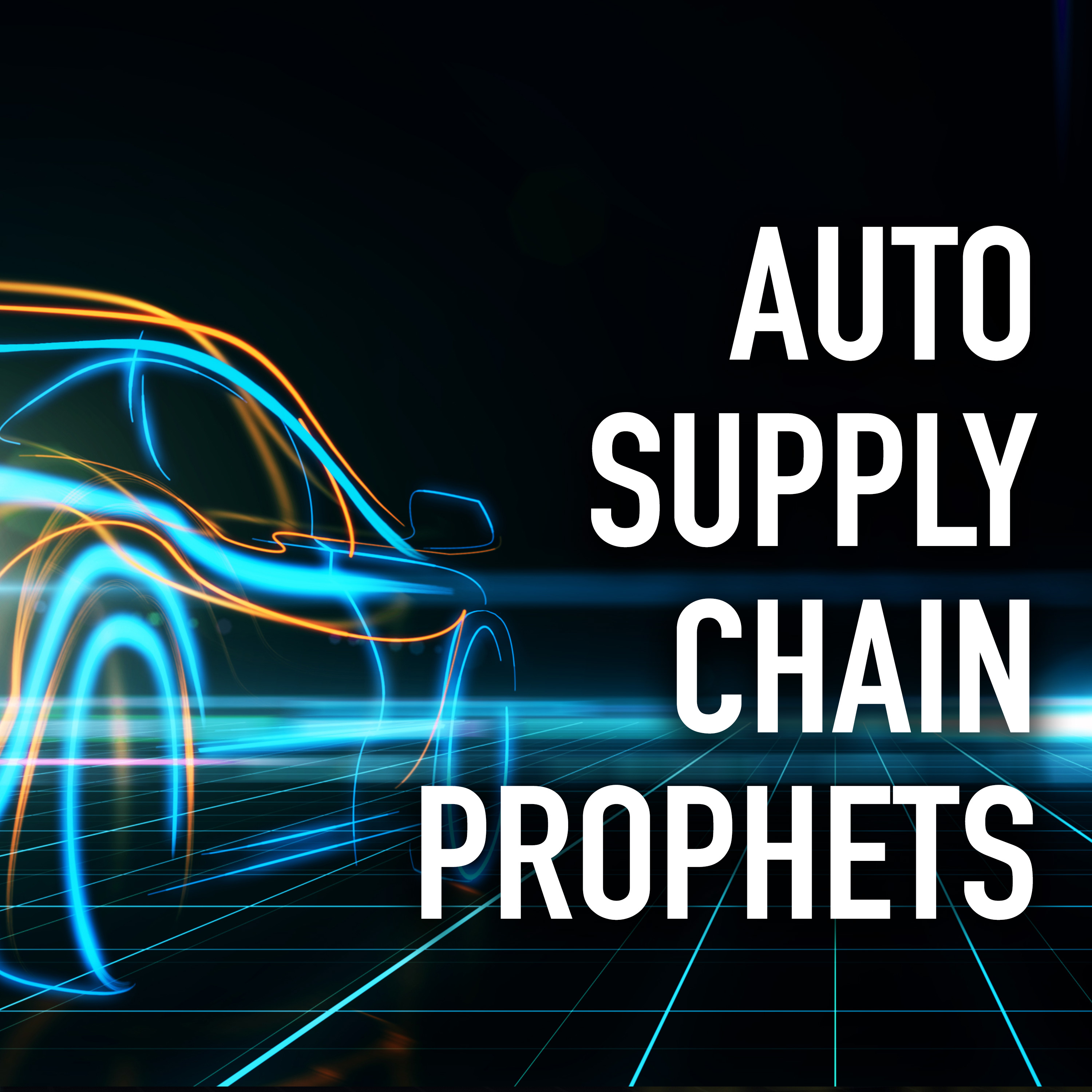Listen "Key Insights on OEM-Supplier Relationships: What the 2025 WRI Results Reveal"
Episode Synopsis
At the heart of The Prophets’ vision are “The 24 Essential Supply Chain Processes.” What are they? Find out, and see the future yourself. Click here What does it take to build trust between OEMs and suppliers — and why does it matter now more than ever?Dr. Angela Johnson, partner at Plante Moran and the new owner of the Working Relations Index (WRI), joins the show to walk us through the 2025 results and what they reveal about the automotive industry’s most critical, and often overlooked, business relationships.This year’s survey shows the biggest gap between the top and bottom OEMs since 2007. Toyota, Honda, and GM improved their scores, while Stellantis, Ford, and Nissan declined, widening the divide. Angela explains that this shift wasn’t because the bottom three necessarily got worse, but because the top three pulled ahead by leveraging long-standing relationships and adopting collaborative practices when it mattered most.Internal alignment was another differentiator. Toyota, Honda, and GM worked across functions — purchasing, engineering, quality — while others struggled with silos and regional disconnects that left suppliers frustrated and confused.Culture came up again and again. Angela introduces the concept of “embedded behaviors” — leadership habits that trace back to a person’s first real boss. These behaviors stick, often for decades, and shape how companies interact with suppliers today. In GM’s case, even with ongoing issues like engineering changes and volume swings, suppliers recognized effort. They saw transparency, and it made all the difference.Then there’s Ford. The team made a well-intentioned decision to outsource parts of purchasing to India, but didn’t account for how it would affect supplier communication. It created more confusion than clarity, and it showed up in their WRI scores.One thing’s clear: good relationships drive real results. Angela shares how WRI scores have a measurable connection to financial performance, especially for OEMs like Toyota, where strong supplier ties align closely with same-year earnings.The takeaway? It’s not just about KPIs. It’s how people behave. If you want better results, measure relationships and take them seriously.Whether you’re a global OEM or a small supplier, the fundamentals are the same: communicate, treat people with respect, and stop thinking of relationships as the “soft stuff.”Because in this industry, they’re anything but.Themes discussed in this episode:The widening trust gap between top and bottom OEMs in the 2025 WRI resultsHow strong supplier relationships directly impact financial performanceWhy responsiveness, communication, and basic “enabling behaviors” still matter mostHow internal silos and regional misalignment weaken supplier trustHow leadership behaviors are passed down across generations in the industryWhy measuring relationships—not just KPIs—is critical to long-term successThe hidden risks of outsourcing without proper communication planningThe cultural habits OEMs fall back on during times of stressFeatured on this episode: Name: Dr. Angela JohnsonTitle: Supplier Relations Analytics Principal at Plante MoranAbout: Dr. Angela leads supplier relations analytics at Plante Moran, where she manages the Working Relations Index® survey and
 ZARZA We are Zarza, the prestigious firm behind major projects in information technology.
ZARZA We are Zarza, the prestigious firm behind major projects in information technology.
